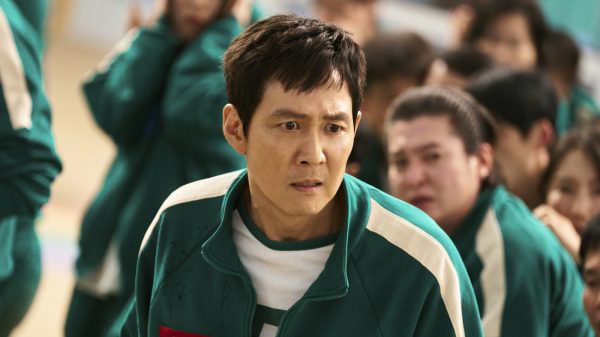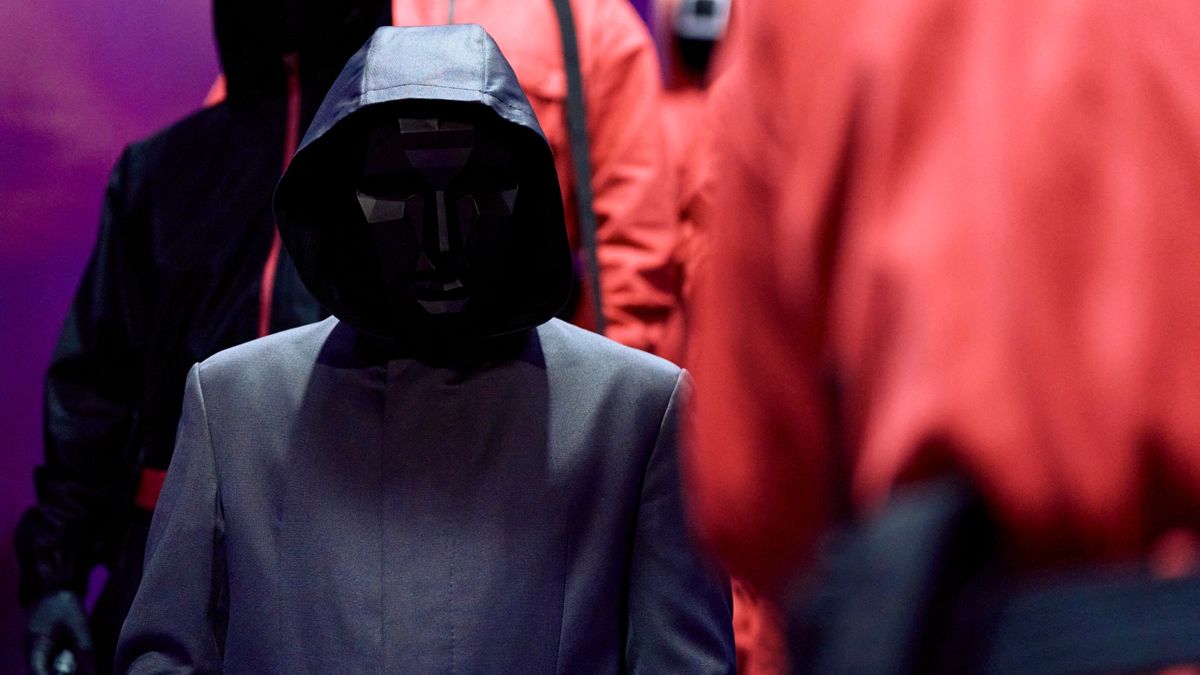Refusing to get on a plane that was supposed to lead to a life of peace and tranquility with his family, Seong Gi-hun (Lee Jung-jae) decided to rejoin the tragic, deadly Squid Games, in order to save others from his undying trauma. The second season of the thrilling drama “Squid Game” was released Dec. 26, and while I do believe the first season did a better job of detailing the characters to make a more dramatic ending, this season was just as impactful.
Season one of “Squid Game” followed Seong Gi-hun, an avid gambler that was buried in debt, as he was placed in the hostile conditions of the Squid Games. In the “games,” 456 players competed for 4.56 Billion Won (31,740,617 USD), by surviving through traditional Korean kids’ games that end in instant death once you lose. In season two, Gi-hun re-enters the game with the goal of saving more clueless, desperate people from dying. The show is a commentary on modern-day capitalism and the question, “What would you do for money?”
A plethora of new characters were introduced this season, the most notable being Lee Seo-hwan (Bak Jeong-bae), one of Gi-huns very close friends before he joined the game. There was also the addition of Yang Dong-guen (Bak Yong-sik) and his mother Kang Ae-sim (Jang Geum-ja). Finally there was Jun-hee (Jo Yu-ri) a young pregnant woman, and the Front Man (Lee Byung-hun). While these players were fighting for their lives inside the games, Jun-ho (Wi Ha-jun), a security guard who infiltrated the games in season one, is helping Gi-hun to try and stop the games from the outside with a group of highly qualified personnel.
One thing this series does extremely well is creating a deep emotional connection between the audience and the characters. This allows the viewers to really root for all the players to make it out of the game alive, even though we know only one person will. While this wasn’t as well executed in the second season as the first, due to there only being seven episodes and a lack of flashbacks to see the characters outside lives, I was still very emotionally connected to these characters and their stories and reasons to get the money.

These realistic characters make their desperation for money even more believable, to the point where the audience has to question if they would do the same. This is why I loved the addition of the players having to vote after every game if they wanted to stay in the games or not. The players were reminded of the amount of money they earned and then labeled an X if they chose to leave, and an O if they chose to stay. This not only perfectly set up external and internal conflicts but allowed the viewers to understand the characters better. While some of the characters may seem greedy, if you look at their place in society and how dependent their happiness is on money, many believe dying is a better alternative than living as society’s “trash” (as the game runners call it).
Another thing the show did well was show how slowly more and more players started to betray each other up until the season’s finale, with the ultimate act of betrayal. In the first few games, people would help each other survive at least one more game. This is exemplified in the episode “One More Game” where the players were cheering each other on as they made their way through a relay race. There was a real sense of comradery during this game, and everyone was supportive. However, once the game was over, the people who wanted to stay in the game started getting angry, since not enough money was raised from deaths. This theme of betrayal grew throughout the series until eventually, the X’s and O’s ended up in an all out brawl where players killed each other outside of the games, with objects as simple as forks.
This betrayal is a perfect example of what money does to people. When their source of enjoyment comes from gaining money instead of simpler things like time with family or friends, humans become feral. This is the exact reason why the games work— they exploit the players’ greatest desires.
While I think the interactions between the players were executed very well, this season fell short when it came to really fleshing out the characters’ back stories. In the first season, there were many flashbacks to understand why these characters were playing in the games. But in this season, the characters plainly stated their reasons for being in the games, or they were projected for everyone to see. This breaks the rule of showing instead of telling; when we were shown the reason for the players’ participation, it was much more meaningful.
Overall, I believe the show does an impeccable job of forcing its audience to consider the effects of money on our lives. The different relationships between characters that often ended in betrayal perfectly encapsulated how fragile the relationships can be when they are ultimately backed by the promise of money. I would recommend this show to anyone who wants to think deeply about how capitalism is affecting us, or is in the mood for a tragic drama with well written characters.




